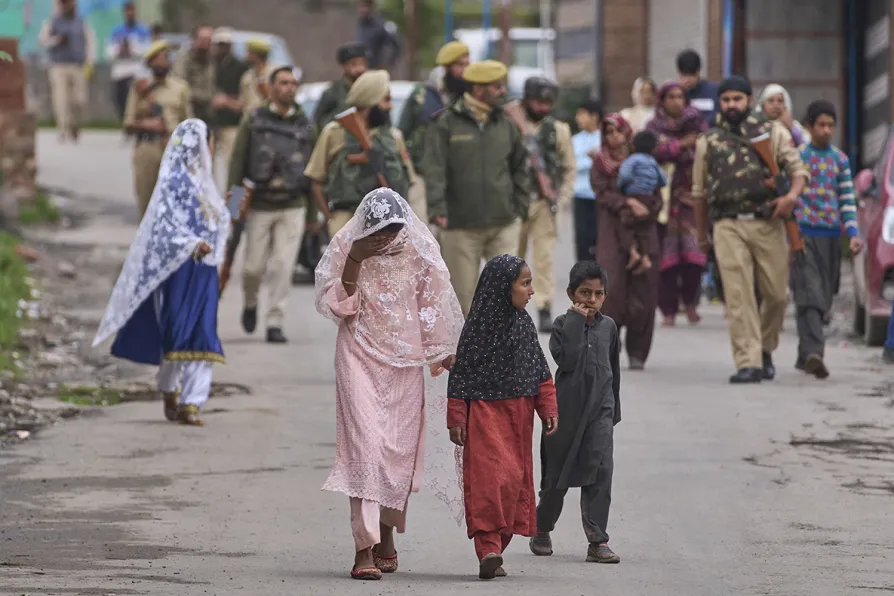
 Kashmiri villagers are escorted by police as they are evacuated following overnight shelling from Pakistan in Uri district, Indian-controlled Kashmir, May 9, 2025
Kashmiri villagers are escorted by police as they are evacuated following overnight shelling from Pakistan in Uri district, Indian-controlled Kashmir, May 9, 2025
BOMBING and drone attacks by India and Pakistan against each other are already killing dozens.
The risk of escalation into a wider war between the two nuclear-armed states is clear. Such a conflict must be prevented.
India’s case is that Pakistan was behind last month’s brutal terrorist attack in Pahalgam in Indian-controlled Kashmir, which killed 26 people. It says the attack was carried out by Lashkar-e-Taiba, a jihadist organisation seeking to bring all Kashmir under Pakistani rule. Both Pakistan and India have a history of backing armed separatist movements on each other’s territory.
The victims of the appalling Pahalgam massacre deserve justice. But, as the Communist Party of India (Marxist) states, “further pressure, diplomatic and political, on Pakistan to proceed to bring the perpetrators to book” is the way to proceed.
Nor can the context of Narendra Modi’s Hindu nationalist government’s suppression of Kashmiri rights be ignored. It has stripped Jammu & Kashmir of its status as an Indian state, with its own government, dividing it into two union territories ruled by centrally appointed lieutenant-governors.
It has revoked rules preventing people from outside the area from buying land, which were intended to assuage fears of Hindu colonisation in the only majority-Muslim state of India.
Military repression in Kashmir did not begin with Modi, but it has dramatically worsened under his government, whose wider attacks on Muslim communities across India have inflamed tensions too.
Now, as India’s communists warn, right-wing media are whipping up anti-Pakistan sentiment which both increases the risk of war and crosses over into attacks on Indian Muslims.
Neither Modi’s far-right regime nor Pakistan’s military-dominated government is a friend of democracy or the left. The Hindu versus Muslim narrative that both promote entrenches the divide-and-rule legacy of the British empire, which carved up the subcontinent on religious lines.
Solidarity with all those in both countries, and in the South Asian diaspora, working for secularism, tolerance and peace.














